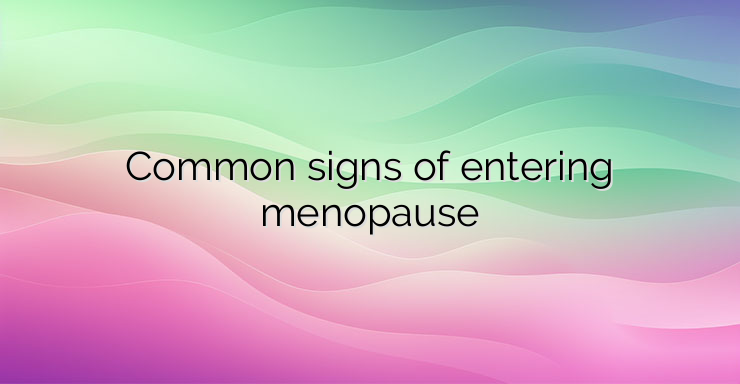Menopause is a physiological period in the development of every woman, which is characterized by the absence of menstruation for 12 or more months without the presence of an underlying pregnancy or pathological processes. The average age for onset of menopause in women is about 51 years, and the transition is slow and may take a different period of time with a change characteristic of the menstrual cycle – perimenopause. The transition to menopause (perimenopause) is a period of varying duration – from a few months to 10 years, an average of 4-5 years, during which changes in the character of the menstrual cycle occur, the secretion of female sex hormones decreases, all the characteristics of decreases are manifested synthesis of hormones symptoms and the female organism prepares for the onset of menopause. Menopause can occur normally with advancing age or be the result of surgical interventions such as hysterectomy and bilateral oophorectomy, the so-called surgical menopause. Follicle-stimulating hormone (FSH), luteinizing hormone (LH), estrogens and progesterone play a major role in the regulation of the menstrual cycle. In the perimenopause and menopause, estrogen levels gradually decrease, ovulation (the release of a mature egg) is disturbed, periods become irregular until they stop completely. What are the most common symptoms of perimenopause? 1. Irregular monthly cycles – as the secretion of female sex hormones is disturbed, the duration of menstrual cycles may become longer or shorter. Some patients complain of profuse bleeding during menstruation, lasting 7 days or more, while others report scanty bleeding; 2. Vasomotor symptoms – night sweats, hot flashes, palpitations, etc. It is characteristic of hot flashes that they appear spontaneously, start from the head, neck, chest, have a duration of 3 to 4 minutes and appear at different time intervals. In different women, hot flashes are characterized by different intensity and may be accompanied by profuse sweating. Another characteristic vasomotor symptom is migraines, and it is more characteristic for them to be without aura. Women who suffer from migraine with aura have a higher risk of developing a stroke; 3. Sleep disturbances – insomnia is a common symptom of perimenopause and usually goes hand in hand with night sweats and hot flashes; 4. Vaginal dryness – as estrogen levels decrease, the vaginal mucosa atrophies, which leads to the development of vaginal dryness. Vaginal dryness is manifested by burning, itching, redness of the vagina and painful intercourse (dyspareunia). Painful intercourse is the cause of a decrease in sexual desire among some patients. The use of lubricants is recommended; 5. Decreased bone density – the reason for the decrease in bone density is again the decreasing levels of estrogens. In the postmenopausal period, women are exposed to an increased risk of developing osteoporosis,which is why prevention and, if necessary, maintenance therapy of the condition is necessary; 6. Increase in body weight – the development of the so-called is characteristic. visceral (abdominal) obesity. Slowing metabolism makes accumulating excess fat easy and losing weight becomes an increasingly difficult task; 7. Deterioration of the lipid profile – estrogens have a protective effect on the cardiovascular system. The decrease in their levels is associated with an increase in the levels of low-density lipoproteins (LDL), or the so-called “bad cholesterol” and lowering the levels of high-density lipoproteins (HDL), the so-called “good cholesterol”. This, in turn, is associated with an increased risk of cardiovascular events among postmenopausal women; 8. Mood swings – about 45% of women experience psychogenic symptoms. They are expressed in irritability, depression, loss of concentration, memory difficulties, reduced self-esteem, etc. Menopause and the transition to it are associated with changes in the female organism, unpleasant symptoms and ailments, which with proper therapy and acceptance of the period pass more easily and without problems.


Leave a Reply